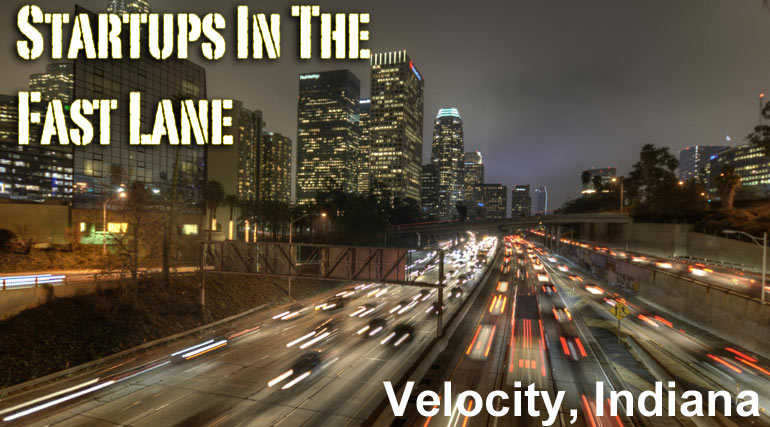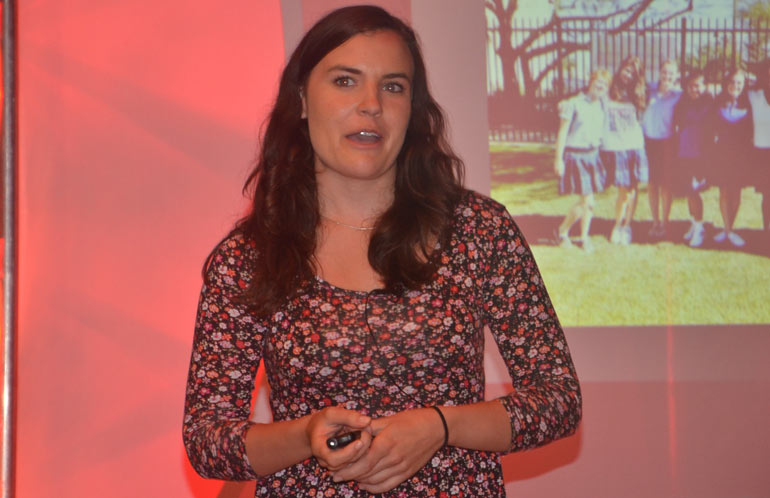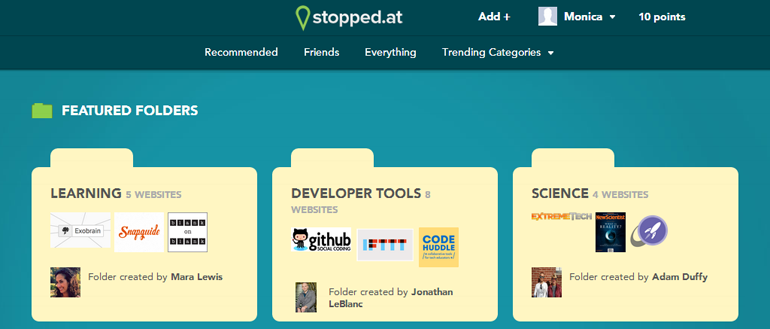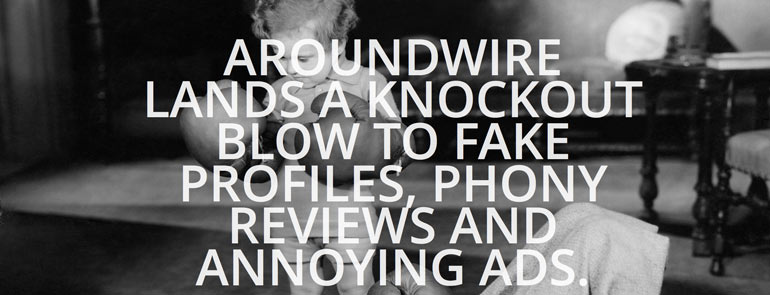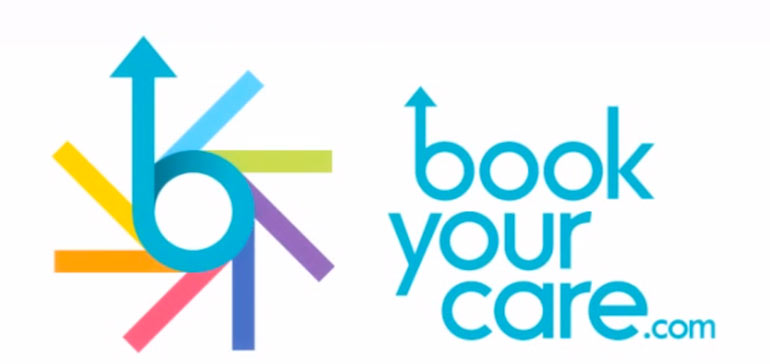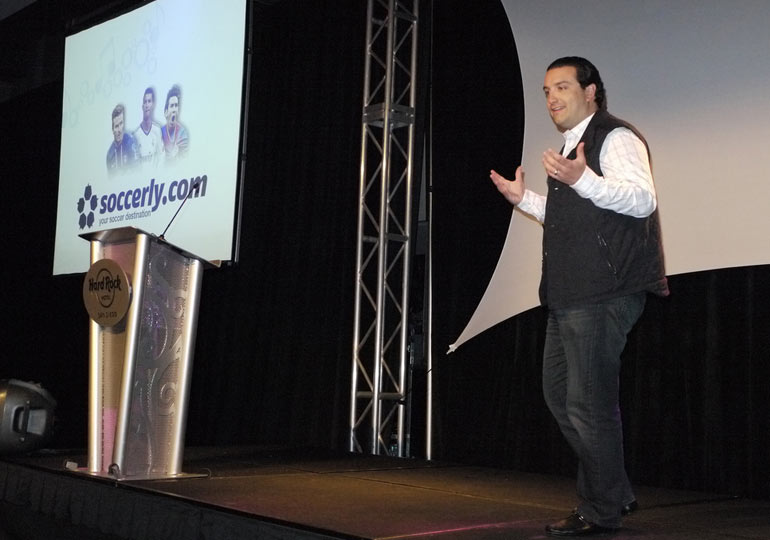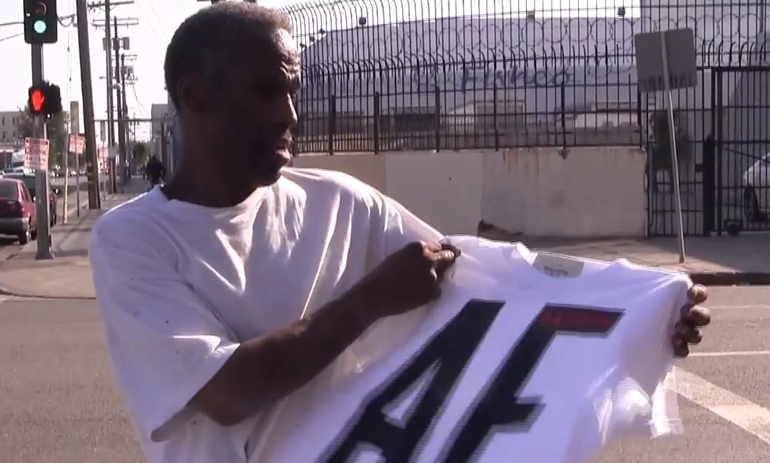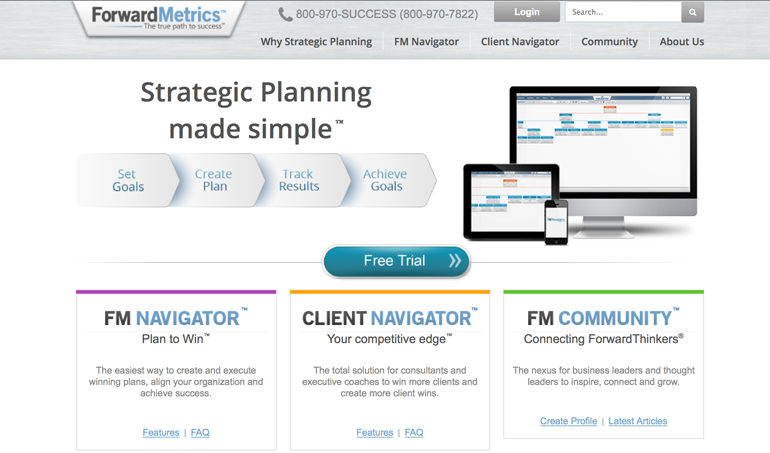 San Diego startup ForwardMetrics is off to the races running. They specialize in simple, easy to understand strategic planning, but once you dive into ForwardMetrics it’s much more than just planning. The ForwardMetrics community is made up of entrepreneurs, c-level executives, executive and business coaches and people just starting out in the business world.
San Diego startup ForwardMetrics is off to the races running. They specialize in simple, easy to understand strategic planning, but once you dive into ForwardMetrics it’s much more than just planning. The ForwardMetrics community is made up of entrepreneurs, c-level executives, executive and business coaches and people just starting out in the business world.
Last october at CTIA’s MobileCon event, ForwardMetrics founder Ozzie DiVinere told bnetTV.com that ForwardMetrics will become the goto place for anyone in business who wants to be successful.
Their enterprise class strategic planning software is based in the cloud and has two main products FM Navigator which any sized company can use to help brainstorm new strategies, hit goals and hold stakeholders accountable.
The other piece is Client Navigator which is a set of tools for executive and business coaches that offers new ways to work with clients.
Then they have the ForwardMetrics community which is designed to connect forward thinkers at any stage in their business lives, to ultimately become more successful.
We got a chance to talk with Andrew Hard the Marketing Director at ForwardMetrics. Check out the interview below:
What is your startup, what does it do?
Our startup is called ForwardMetrics, we have built enterprise-class strategic planning software that is based in the cloud. Companies can use our software (called FM Navigator) to brainstorm new strategies, hit their goals and hold stakeholders in key departments accountable.
We also have a Client Navigator product, a different version with a set of additional tools designed specifically for consultants and executive coaches that offers new ways to work with clients – along with powerful tools for acquisition, retention and revenue.
Our very unique go-to-market strategy is not to sell directly to companies, but to license our software to consultants and executive coaches, who are the individuals that actually conduct strategic planning sessions at the vast majority of companies.
Who are the founders and what are their backgrounds?
The founders are our CEO Ozzie DiVinere and CSO Scott Warner, here are their brief backgrounds:
Ozzie DiVinere is CEO/Co-Founder of ForwardMetrics.com. He Co-Founded the company in 2011 with a vision to bring enterprise cloud-based technology to the strategic planning, performance management and project management space. DiVinere’s passion is to transform organizations by connecting them with executive coaches and strategic planners to adopt cloud technologies to help each one achieve success and grow their businesses. A win-win paradigm.
In his previous role as Senior Vice President of the Private Client Group at Altegris, which was acquired by the Fortune 250 Company Genworth, DiVinere was responsible for delivering strategic sales and support to Altegris’ wealthiest customers globally. In addition, DiVinere created a very successful toy company, Skate Monster, which had Walmart as its primary customer.
DiVinere received his B.S. in Business Administration, Marketing from San Diego State University.
Scott Warner serves as Chief Strategic Officer/Co-Founder. After Co-Founding the company in 2011, Warner provides the vision for the company and is the Chief Architect of the FM Navigator and Client Navigator platforms.Prior to founding ForwardMetrics he was the Founder, CEO and Chairman of AccuSoft Corporation, the leading imaging technology company, which was acquired in 2008. He is also the founder of several other companies in areas including fitness and real estate as well as an angel investor and adviser to numerous organizations in the area of strategic planning and growth.
Where are you based?
We are based in Encinitas, Calif. Encinitas is just north of downtown San Diego.
What is the startup culture like where you are based?
The culture is San Diego is very strong for startups, BioTech especially. The downtown San Diego area is extremely friendly for startups. Very friendly and very strong startup culture. There are a number of incubators and angel investors in the downtown area, a lot of venture capital floating around and a very strong entrepreneurial spirit.
The startup capitals in the area are in Carlsbad (biotech), Sorento Valley and downtown there are several business parks (nearby the Qualcomm campus, etc.) There are definitely pockets throughout the area – San Diego has a very unique startup culture, but there a very friendly atmosphere, resources and money to be invested.
Most San Diego-area startups are Biotech, consulting or chipmakers – ForwardMetrics is very unique for the area.
What problem does your startup solve?
Eighty percent of companies DO NOT HAVE a strategic plan – a ship without a rudder. The other 20 percent do not implement their plans properly.
Most often, a consultant will come in to an organization and conduct a lengthy and highly expensive sessions – at the end of which he hands the company their strategic plan for the next one to five years in the form of a static Excel spreadsheet. That static, print document is not dynamic and becomes old just weeks after the consultant walks out of the building – most often it ends up in a desk drawer and is looked at never or rarely, and then only by the executive team.
ForwardMetrics’ new cloud-based software lets consultants and coaches offer companies a dynamic, living strategic plan that can be tracked and implemented at an organization after they leave. The software tracks goals from the plan in different departments, making it so the company leadership can track progress and make sure that the company is performing as needed.
What is one challenge that you’ve overcome in the startup process?
We have overcome a number of obstacles. We’ve overcome the typical obstacles around raising money from investors, skepticism and reluctance to take risks. Round A of fundraising will end this coming week – after really starting the process a full year ago.
We’ve also faced the challenges that many area startups have dealt with – difficulties with finding the right outside development team, marketing/design agency and video vendors. There are many resources of this kind in the area – but many of these companies overcharge, underperform and care very little about their clients.
Shifting from a dev team in India, to our current team in the Ukraine – along with having many different remote employees — has caused all sorts of interesting communications problems.
We’ve also face the problems that a lot of startups deal with of being understaffed – people are wearing multiple hats and there is more to get done than we have resources and people to do them. Through all of that, we have managed to launch a solid, enterprise-class software app with an eager base of prospective clients and a solid social and PR presence.
What are some of the milestones your startup has achieved?
On May 15, we will launch game-changing new technology – which helps organizations change the paradigm and operate on a results-based approach. It is a revolutionary shift in how companies are run, changing the focus from managing activity to a focus only on results.
We also have a thriving community site that has grown to over 500 executive coaches, consultants and business leaders sharing content and making connections. The membership growth on this site has increased very rapidly in just the last few months – and the growth is only spiking even more.
We’ve also forged an impressive number of strategic partnerships with hundreds of consultants, executive coaches and strategic planners – generated a lot of interest from surprisingly large companies – and have also gotten some good press exposure.
What are your next milestones?
Our next milestones are to launch the product and grow to at least $2-4 million in revenue by the end of the year. We also intend to grow our community site well into the thousands by the end of the year, and of course growing our client base to several top consulting firms and prominent companies.
We also want to receive that crucial customer feedback and greatly enhance our products so that they can be integrated into literally thousands of businesses around the globe.
Who are your mentors and role models?
Mark Cuban, Marc Benioff, Larry Ellison, Jeffrey Immelt, Steve Jobs, Steven Covey
What are some of the advantages/disadvantages growing your startup outside of Silicon Valley?
Advantages: Top talent is extremely attracted to the San Diego area, both because of the city’s reputation and the natural beauty of the destination. Top talent in sales and marketing can also be found at extremely discounted prices in this area as opposed to L.A., New York, etc. There is also a large base of VC and angel investors, along with retired businessmen, in the San Diego area – so the region also helped with fund-raising as well. San Diego also offers an interested array of strategic business partners and marketing boutique-type resources.
Disadvantages: Finding good development resources is definitely a challenge – this might apply to a lot of places, it’s probably something you her somewhat frequently, but it’s very hard to know what you’re going to get and also get good work back for your dollar. Through everything, we have ended up with a very talented dev team that we’re able to work with very closely. Another great advantage of being in the Silicon Valley area is access to input from a wide array of technology companies – however, at ForwardMetrics we have had access to great input from professional strategic planning professionals and received extremely positive feedback even very recently.
What’s next for your startup?
The way we reach the market is very unique: Instead of going after companies, we work with consultants, executive coaches and strategic planners – who introduce the technology to their clients and continue to work with them to create and execute plans that achieve goals.
From there, we launch FM University to train and certify our partner coaches and consultants on the use of FM Navigator and our other cloud-based tools, and conduct extensive trainings and virtual events – along with a massive PR blitz! We will also be hiring on more staff including a much larger, more robust sales team and more in-house marketing resources, heck, maybe even an HR person!
Where can people find out more, and what is your Twitter username?
To find out more, please visit www.forwardmetrics.com or visit our social: Our Twitter is @ForwardMetrics, our Facebook is facebook.com/ForwardMetrics and our LinkedIn page is http://www.linkedin.com/company/2537683.






